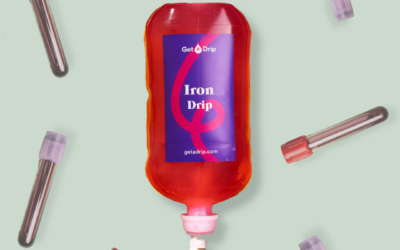
The Vitamin B dream team – your secret to a vibrant life brimming with energy and wellness! Vitamin B Complex, a group of essential water-soluble vitamins, plays a crucial role in maintaining overall health and wellness. So, let’s dive deep and dissect what is in our B Complex Vitamin Injection and how each of those B Vitamins may benefit you!
Vitamin B1: Thiamine (also known as Vitamin B1) is a water-soluble Vitamin found naturally in food. Vitamin B1 has many benefits including the contribution to energy-yielding metabolism, normal psychological function, normal function of the heart and nervous system. Our bodies do not naturally produce Vitamin B1 and only small amounts are stored in the liver, so a daily intake of thiamine-rich foods is vital. Foods rich in B1 include: eggs, salmon, pork and beans.
Common signs of a Vitamin B1 deficiency include:
- Fatigue
- Irritability
- Poor memory
- Loss of appetite
- Sleep disturbances
- Weight loss
Vitamin B2: Riboflavin (also known as Vitamin B2) is an essential B Vitamin for human health. Vitamin B2 is a water-soluble Vitamin that is carried through the bloodstream and whatever is not needed is passed out through urine. Much like Vitamin B1, Vitamin B2 also contributes to energy-yielding metabolism and normal function of the nervous system, but it also aids in the maintenance of red blood cells as well as contributing to the normal metabolism of iron.
People need to consume Vitamin B2 every day because the body can only store small amounts at a time and supplies go down at a fast rate. Foods rich in Vitamin B2 include: tuna, avocados, peanuts and mushrooms.
Common signs of a Vitamin B2 deficiency include:
- Fatigue
- Swollen throat
- Blurred vision
- Cracked skin
- Itching of the skin
- Dermatitis of the mouth
Vitamin B3: Niacin (also known as Vitamin B3) and works in the body as a coenzyme with more than 400 enzymes dependent on it for various reactions. It helps contribute to the maintenance of normal skin and mucous membranes as well as aids in the reduction of tiredness and fatigue. Foods rich in Vitamin B3 include: brown rice, sunflower seeds, green peas, mushrooms and tuna.
Common signs of a Vitamin B3 deficiency include:
- Swollen mouth and bright red tongue
- Depression
- Disorientation
- Memory loss
- Vomiting and diarrhoea
Vitamin B5: Pantothenic Acid (also known as Vitamin B5) is used to make coenzyme A (CoA), a chemical compound that helps enzymes to build and break down fatty acids as well as perform other metabolic functions. Vitamin B5 has many beneficial properties such as the contribution to normal mental performance, normal synthesis and metabolism of steroid hormones, Vitamin D and some neurotransmitters as well as aids in the reduction of tiredness and fatigue.
Foods that are rich in Vitamin B5 include: sweet potatoes, broccoli, milk, salmon and eggs.
Common signs of a Vitamin B5 deficiency include:
- Headaches
- Irritability
- Numbness or burning of the hands or feet
- Nausea and vomiting
Vitamin B6: Pyridoxine (also known as Vitamin B6) is an active coenzyme form and the most common measure of B6 blood levels in the body. Pyridoxal 5 phosphate (PLP) is the active coenzyme from the most common measure of B6 levels in the body. Vitamin B6 contributes to a variety of various functions throughout the body, including: the contribution of normal red blood cell formation, reduction of tiredness and fatigue, regulation of hormonal activity and normal function of the immune system.
Foods rich in Vitamin B6 include: chickpeas, beef liver, salmon, tuna.
Book your Vitamin B Complex Injection for only £35 or add it on as an IV Drip Extra. Click here to book your Vitamin B Complex Injection today!


